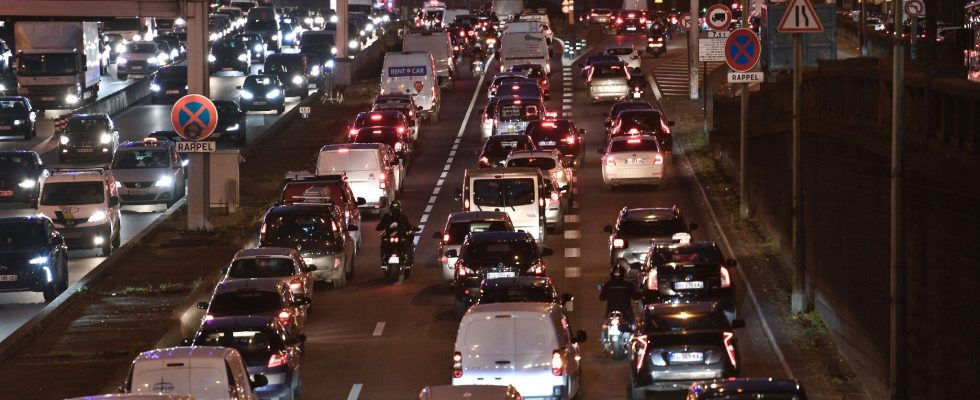“If there were no Olympics, we would probably need 15 years of cultural battle to achieve it.” Emmanuel Grégoire, deputy for town planning at Paris town hall and right-hand man of Anne Hidalgo, assures us: limiting traffic speed to 50 km/h on the ring road bordering the capital can be a major opportunity to reduce automobile pollution and protect the environment.
The Paris town hall wants to seize the opportunity of the Olympic Games to pass the desired measures favorable to the climate. The ring road is a battle that is as important as it is divisive, as it is used every day by 1.2 million vehicles. A significant source of pollution: a study published this Friday, November 24 by the European Environment Agency indicates that air pollution from fine particles caused the deaths of 253,000 people in the European Union in 2021 – a figure estimated at 40,000 in France by Public Health France.
In addition to traffic speed, in the weeks following the Olympics, the left lane of the ring road will also be reserved during peak hours for carpooling (vehicles carrying two or more people), public transport, taxis, VTC, disabled people and emergency vehicles. The objective: to limit “self-driving” (the act of traveling alone by car), which concerns nearly 80% of cars circulating on the main Paris ring road.
A “generally beneficial” measure
Lowering the speed of traffic on the ring road could in any case be a “generally beneficial” measure for the planet but also for the population, estimated to AFP Damien Verry, expert from the Center for Studies and Expertise on risks, environment, mobility and planning (Cerema).
“Reducing car travel is generally beneficial. It improves the quality of life of local residents, allows for a slightly greater modal shift (towards public transport or soft mobility), and it limits accident rates,” believes the expert. , who adds that “more relaxed driving, with a lower average speed, also makes it possible to reduce CO2 emissions” a little. Even if Damien Verry nevertheless wants to be more nuanced: he explains that there is no “direct link” between reduction of speeds and reduction in emissions, which “depend mainly on traffic conditions”.
This measure could ultimately prove more effective on the issue of noise pollution, with engines roaring a little less loudly on the edge of the Paris metropolitan area. Even if here too, the effects still remain to be observed, for the Cerema specialist: “We can imagine that it is going in the right direction, but there is no guarantee. Someone who will accelerate, brake, go quickly, will make noise.”
Insufficient public transport?
If lowering the speed will not change the air quality in Paris overnight, it “is part of the interesting measures to achieve a change in the system. We facilitate the integration of public transport, we get people used to driving more gently. It helps the other objectives of transport policies,” judges Damien Verry. Nevertheless, “this reduction must be part of a general travel policy, which properly integrates the needs of residents (urban planning, travel, location of jobs and services)”, still believes the expert.
And it is precisely on this point that the criticisms of the oppositions are focused, and first of all the LR president of the Ile-de-France region Valérie Pécresse, for whom Anne Hidalgo “wants to discourage commuters from taking their cars”. For the right, this measure would only be effective if there were sufficient alternatives to the car. Which, in their eyes, is not the case in Paris and its suburbs. “The problem is that we do not yet have sufficient public transport infrastructure and that will not have changed on September 14, 2024. We would have had to wait for the opening of the Grand Paris Express,” underlined the ex-candidate for the presidential election this Wednesday At Figaroreferring to the 330 kilometers of new metros that will cross the region in 2030.
“There is always a good reason not to do it or to do it later,” retorted Emmanuel Grégoire on Thursday, judging that these were “the arguments of those who call themselves green but are not”. Like the exchange of arms between Anne Hidalgo, Clément Beaune and Valérie Pécresse on the arrival of public transport on time for Paris 2024, each measure and each declaration risks becoming the controversy of the day between now and the Games.
